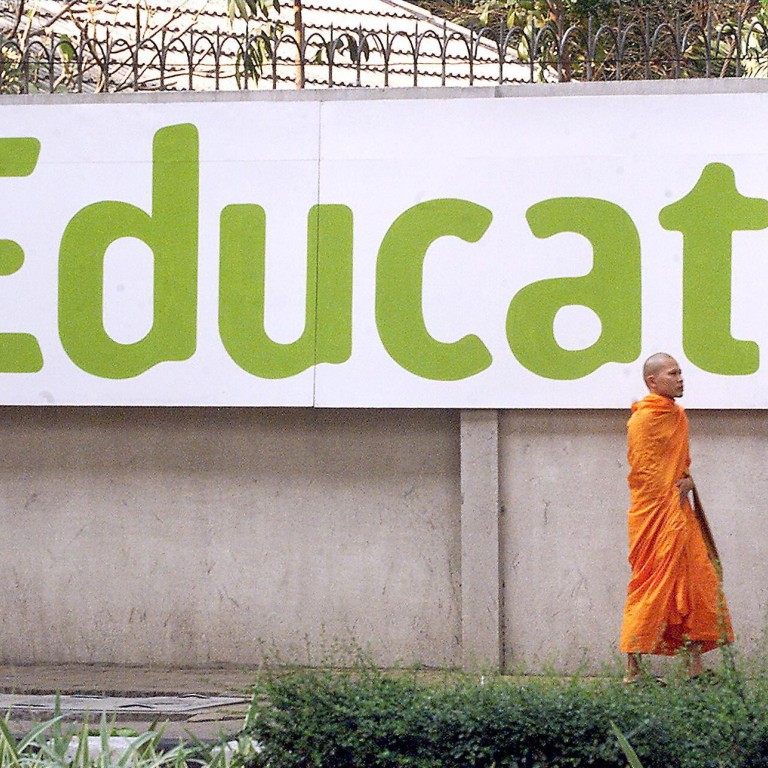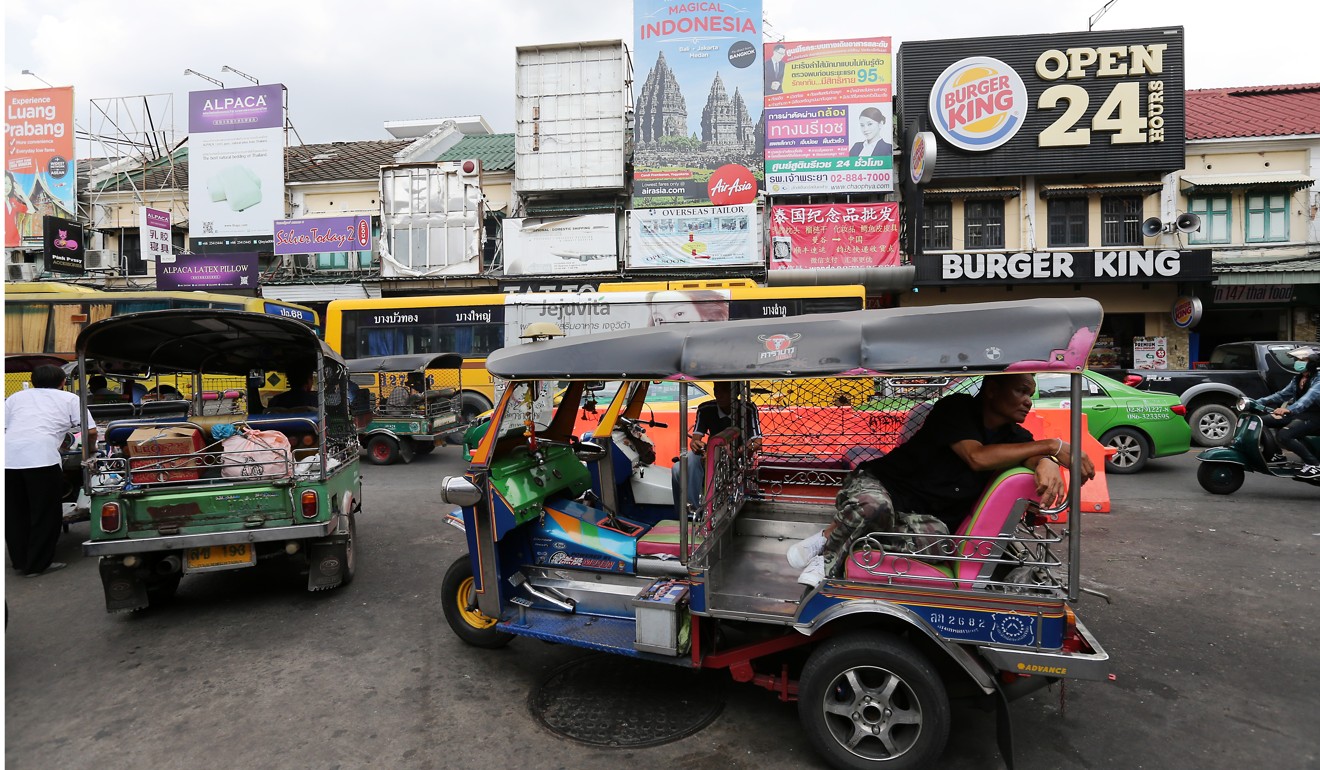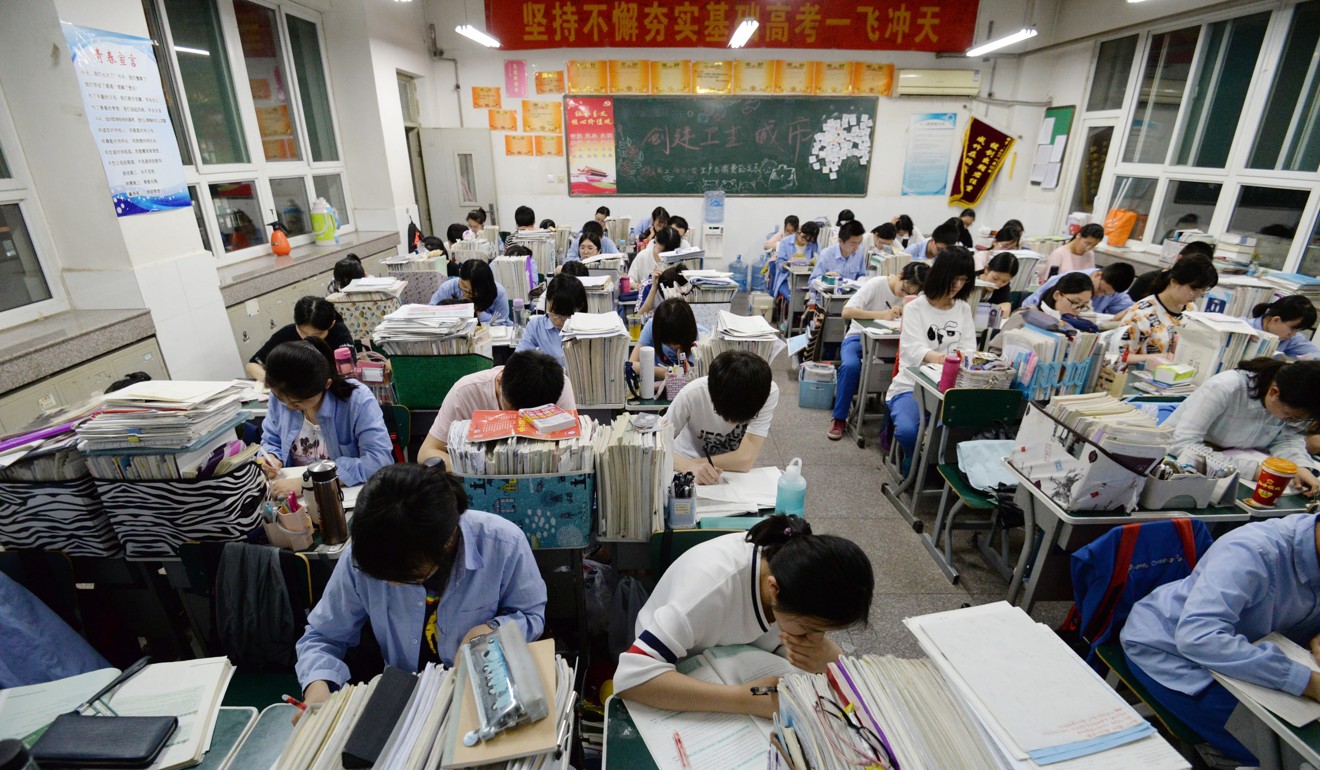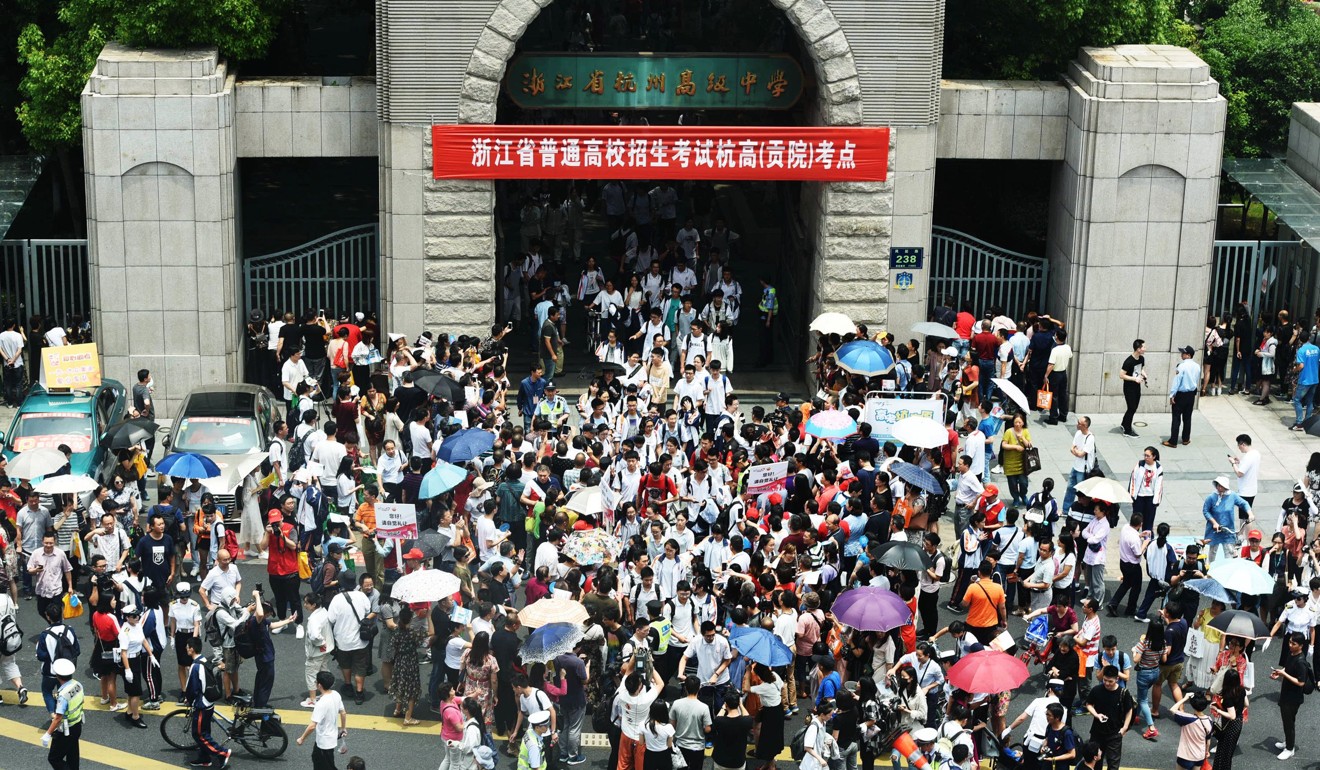
As Chinese students flock to Thai universities, some are in for a hard lesson
- Thailand’s universities may rank below their counterparts in the US and Singapore, but lower costs and entry standards can still give them the edge
- While their popularity is increasing, complaints of exploitation are also on the rise
Thailand’s higher education sector is experiencing growing demand from Chinese students, but as thousands flock to the country to study, some are leaving the Land of Smiles less than happy with their experience.
While relatively low costs and, in some cases, lower entry standards help to draw Chinese students to the country, increasing numbers feel they are being exploited – either by the universities themselves or by unscrupulous middlemen marketing their services. They have complained of being overcharged or offered substandard courses.
Tang, 35, is among them. The PhD candidate said he paid an “education agent” in Beijing 120,000 yuan (US$17,000) to pursue a two-year MBA at one of Thailand’s private universities in 2017. This included a semester fee, air travel and accommodation.

The website for Tang’s MBA English-language course said the overall semester fee was 230,000 baht or 53,000 yuan.
All work and no play: why Hong Kong students are having mental health problems
Tang is one of around 30,000 students from mainland China pursuing higher education in Thailand. The country’s cost of living and cultural similarities are the main reasons Chinese choose Thai institutes over universities in the US, Europe or Singapore, according to You Xiang, vice-dean of Dhurakij Pundit University’s China-Asean International College.
The growth has also been fuelled by demand from students who failed the gaokao – an annual university entrance examination in China.

You said only 5 per cent of the roughly 600 students at the college were Thai, with the rest being from China or other countries in Southeast Asia. He said the college recruited students from China directly and through education agents.
“Around 20 per cent of the Chinese students who graduate here will continue working in Thailand. The rest will return to work in China because the degree is recognised there. Graduates can work in a Chinese company in Thailand or a Thai company in China because they have acquired an understanding of both cultures,” You said.
School of WeChat: the China study tours teaching tech to Singapore
Even though Thailand’s universities ranked well below those in the United States, Europe, Australia, New Zealand and Singapore, they had become an attractive option in recent years, said Chada Triamvithaya, an academic at Thailand’s King Mongkut’s Institute of Technology Ladkrabang.
Many Chinese parents she had spoken to wanted to send their children to Thailand because they saw the country as “a bridge to Southeast Asia”, she said.
“Chinese families who do business might want to expand in the region, so with their children studying in Thailand, they hope that it would help them expand to neighbouring countries in Asean.
“The students can practise their English at Thailand’s international institutions, given that they are recruited with the English-language score, before taking postgraduate degrees in English-speaking countries,” she said.

This popularity has paved the way for Chinese education agents to market courses on the mainland and also for Chinese education investment firms to acquire direct or indirect stakes in private universities, particularly ones that are struggling. However, this sometimes means the Chinese have an outsize influence over Thai institutions.
“The investment sometimes means Chinese investors have full control of the curriculum, the student recruitment process and the quality assessment of the degrees offered,” said Chada, who has studied the Chinese diaspora in Thailand.
“On the other hand, Thai universities face tougher competition because of lower numbers of local students due to demographic trends, so they have relied on many Chinese ‘education agents’ to supply them with students.”
Chada said some private universities advertised international courses – which means they are delivered in English – but then waived the English-language score for Chinese students. “Some universities have provided translators in the classrooms for the students, which means that the course is not delivered in the language of the degree awarded,” Chada said.
China outnumbers Japan for first time in Asia university rankings
The US-China trade war had also boosted the number of Chinese students as many found it easier to get into Thai institutions. However, universities that have low entry standards are doing so at their own expense. “This affects Thailand’s education reputation internationally because we have not strictly monitored the holes in the system like, for example, South Korea or Malaysia, countries that are popular among Chinese students as well.
“Thai universities are hurt too. There have been cases where instructors who did not speak Mandarin, even though they could deliver lessons in the English language, were asked to leave.”
There are other types of exploitation too. Chompoo, 33, from Henan province, who came to study in Thailand in 2007 as an exchange student, said a private Thai university sold its course package to Chinese education agents.
“A few years ago, a Bangkok university was contacted by the Chinese and they wanted to ‘rent’ its space and course. They brought in their own instructors and students from China. But the degree awarded was under the university’s name. It was a ‘degree for sale’ scheme.”
Chada said most cases of misconduct involved private institutions as public universities could “not afford to risk damaging their reputation”.
Thai institutions should work with reputable education agents to market the country’s universities in China, Chada said.
“We need ones which focus on education quality and ethics, and not just the money.” ■

